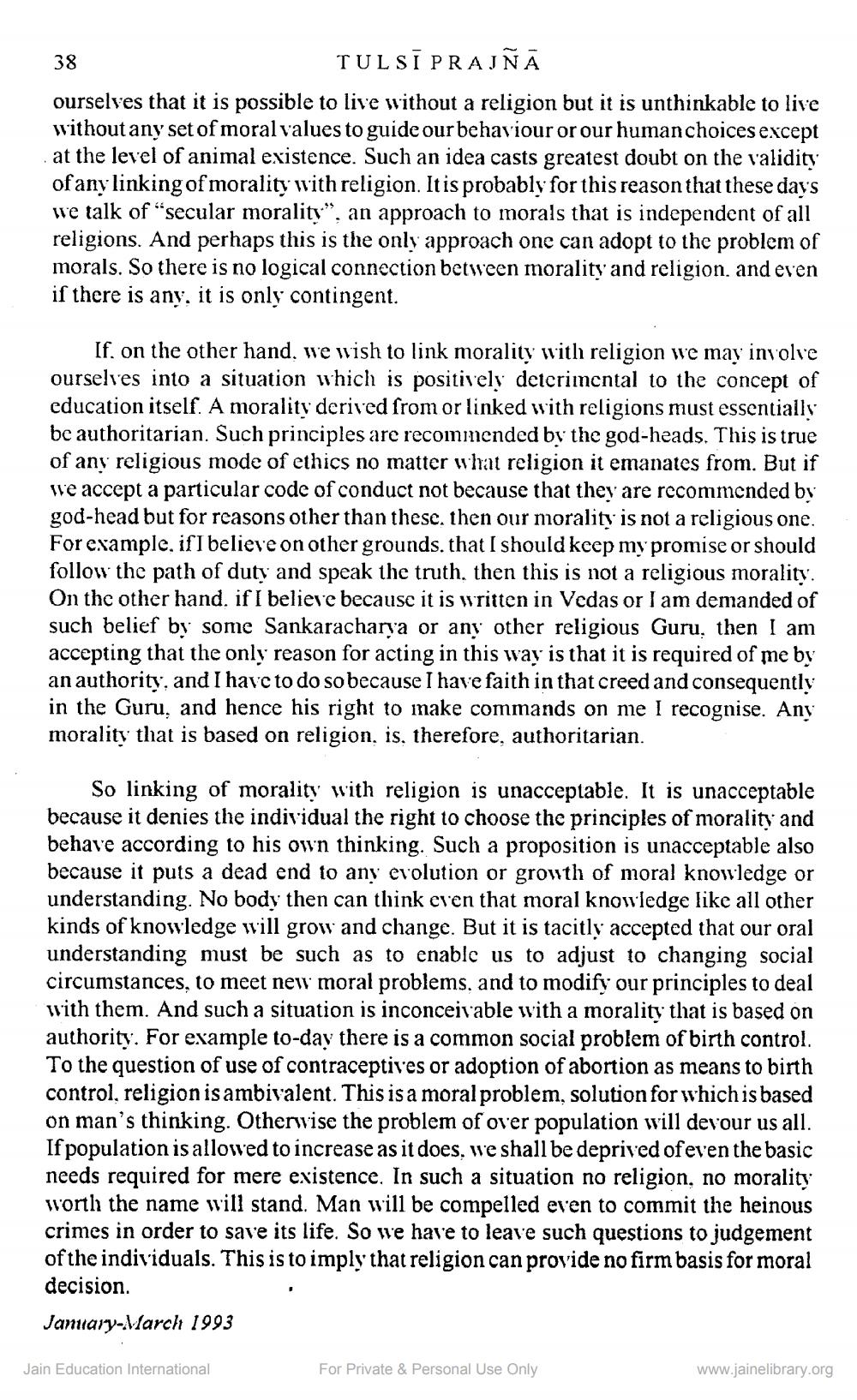________________
38
TULSI PRAJÑA ourselves that it is possible to live without a religion but it is unthinkable to live without any set of moral values to guide our behaviour or our human choices except at the level of animal existence. Such an idea casts greatest doubt on the validity of any linking of morality with religion. It is probably for this reason that these days we talk of “secular morality", an approach to morals that is independent of all religions. And perhaps this is the only approach one can adopt to the problem of morals. So there is no logical connection between morality and religion, and even if there is any, it is only contingent.
If, on the other hand, we wish to link morality with religion we may involve ourselves into a situation which is positively detcrimental to the concept of education itself. A morality derived from or linked with religions must essentially be authoritarian. Such principles are recommended by the god-heads. This is true of any religious mode of ethics no matter what religion it emanates from. But if We accept a particular code of conduct not because that they are recommended by god-head but for reasons other than these, then our morality is not a religious one. For example, if I believe on other grounds. that I should keep my promise or should follow the path of duty and speak the truth, then this is not a religious morality. On the other hand, if I believe because it is written in Vedas or I am demanded of such belief by some Sankaracharya or any other religious Guru, then I am accepting that the only reason for acting in this way is that it is required of me by an authority, and I have to do so because I have faith in that creed and consequently in the Guru, and hence his right to make commands on me I recognise. Any morality that is based on religion, is, therefore, authoritarian.
So linking of morality with religion is unacceptable. It is unacceptable because it denies the individual the right to choose the principles of morality and behave according to his own thinking. Such a proposition is unacceptable also because it puts a dead end to any evolution or growth of moral knowledge or understanding. No body then can think even that moral knowledge like all other kinds of knowledge will grow and change. But it is tacitly accepted that our oral understanding must be such as to enable us to adjust to changing social circumstances, to meet new moral problems, and to modify our principles to deal with them. And such a situation is inconceivable with a morality that is based on authority. For example to-day there is a common social problem of birth control. To the question of use of contraceptives or adoption of abortion as means to birth control, religion is ambivalent. This is a moral problem, solution for which is based on man's thinking. Otherwise the problem of over population will devour us all. If population is allowed to increase as it does, we shall be deprived of even the basic needs required for mere existence. In such a situation no religion, no morality worth the name will stand. Man will be compelled even to commit the heinous crimes in order to save its life. So we have to leave such questions to judgement of the individuals. This is to imply that religion can provide no firm basis for moral decision.
January March 1993
Jain Education International
For Private & Personal Use Only
www.jainelibrary.org




